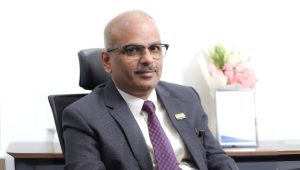Dr. Shruti Sharma, CEO of Brindavan Group of Institutions, is celebrated for her forward-thinking leadership and scholarly acumen. Like a true leader, she has embraced pathbreaking initiatives to revolutionise higher education in India. Her latest scholarly endeavour, a comparative study of global best practices in curriculum innovation, reflects her steadfast commitment to creating a progressive and globally aligned educational ecosystem for Indian students.
In a world marked by exponential technological advancement, evolving job markets, and a heightened emphasis on interdisciplinary expertise, Dr. Sharma’s study comes across as both timely and impactful. By analysing curriculum models from globally recognised institutions across the United States, Europe, and Asia-Pacific, she offers a strategic roadmap to improve and reshape higher education in India.
Reimagining Education for a New Era
Dr. Sharma believes that curriculum is not a static entity; it must be dynamic, responsive, and integrative. Drawing insights from institutions such as MIT, University of Cambridge, the National University of Singapore, and ETH Zurich, she highlights how modularity, experiential learning, and tech-enabled pedagogy can significantly enhance student engagement and learning outcomes.
This approach resonates strongly with India’s New Education Policy (NEP), which champions flexibility, multidisciplinary studies, and a learner-centric pedagogical framework, aiming to transform traditional educational paradigms.
Dr. Sharma advocates for a shift from rote learning to competency-based education, where students can master clearly defined skills and outcomes at their own pace. This model, widely adopted in Scandinavian universities, emphasises critical thinking, collaboration, and creativity – skills that are highly essential for today’s fast-changing and competitive job market.
Bridging Global Practices with Indian Realities
While India boasts a rich academic heritage, Dr. Sharma observes that its curriculum frameworks often lag in adaptability and relevance. Through her study, she proposes a hybrid model, one that respects India’s academic rigour while integrating global innovations such as interdisciplinary modules, industry-driven capstone projects, and AI-powered personalized learning paths.
Her recommendations align seamlessly with the vision of India’s New Education Policy (NEP), which advocates for a holistic, flexible, multidisciplinary approach to education aimed at developing critical thinking and problem-solving skills. By promoting curricular integration of technology, experiential learning, and global perspectives, Dr. Sharma’s work supports the broader goals of NEP to make Indian higher education more globally competitive and inclusive.
A case in point is the “flipped classroom” approach, where students engage with course content through digital platforms before attending in-person sessions focused on discussions and application. This model, widely successful in Australian and Finnish universities, fosters deeper understanding and active learning. Dr. Sharma has already begun piloting similar methodologies at Brindavan, with promising outcomes in both STEM and liberal arts programs.
Curriculum as a Vehicle for Inclusion and Global Readiness
Equity in education is a central theme of Dr. Sharma’s study that places a strong focus on ensuring equity in education. Taking cues from inclusive curriculum models in Canada and New Zealand, she emphasises the importance of designing content that reflects diverse cultures, languages, and perspectives. Such inclusivity not only promotes a sense of belonging among students from varied backgrounds but also prepares them to perform in multiculturally diverse settings.
Furthermore, she stresses the importance of global literacy – an awareness of international issues, cultural nuances, and global citizenship as a core element of curriculum design. She believes that integrating foreign language training, international policy studies, and global internship programs into the higher education curriculum can equip Indian students with a competitive edge in the age of globalisation.
Towards a National Curriculum Renaissance
Dr. Sharma’s research also calls for systemic collaboration between academia, industry, and government to implement curriculum reforms at scale. She envisions a national innovation consortium, a platform that brings together thought leaders from India and abroad to co-create future-ready academic frameworks.
Her recommendations have already gained traction among policymakers. In response to her findings, Brindavan Group of Institutions is exploring strategic curriculum partnerships with top-tier universities to launch co-branded programs and joint certifications that are both globally recognized and locally relevant.
Leading India’s Academic Transformation
A scholar, strategist, and changemaker, Dr. Shruti Sharma is redefining academic excellence through her thoughtful research and stewardship. Her comparative study is not just a piece of an academic exercise; it is a clarion call for bringing real and transformative change in Indian higher education. With a clear-eyed vision and a ceaseless commitment to quality, she is empowering institutions across India to embrace innovation, bridge global gaps, and build a curriculum that is as diverse and dynamic as the students it serves.
Through her efforts, Dr. Sharma is not just imagining the future of education, she is architecting it. Her commitment to innovation and inclusion promises a brighter and more competitive future for Indian academia.















